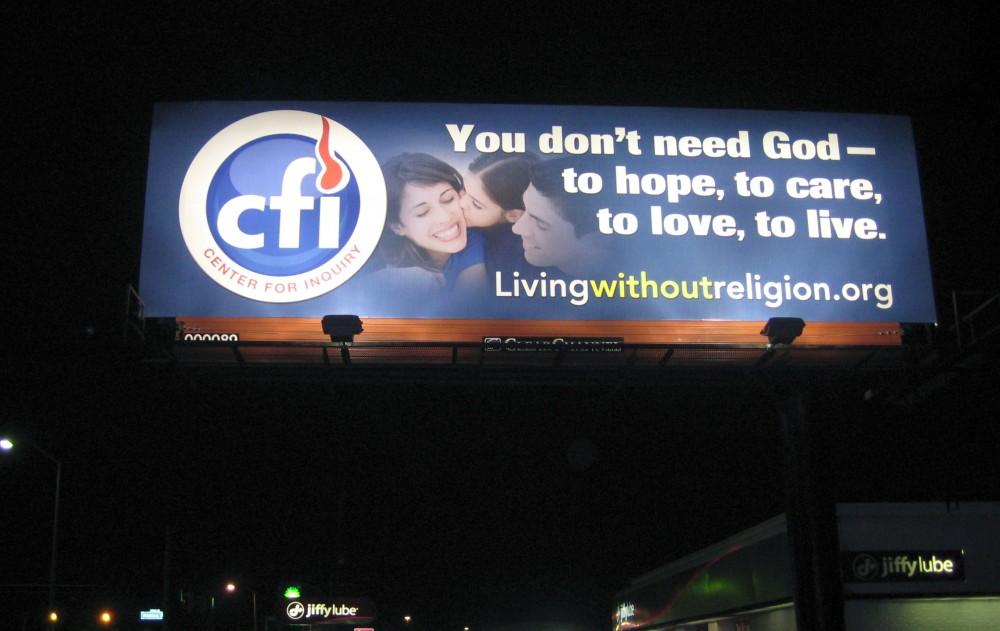Atheism billboard draws local attention, controversy

Courtesy Photo / centerforinquiry.org The anti-religion billboard can be found on North Bound 131
Sep 15, 2011
By sponsoring a billboard on northbound U.S. 131, the Center for Inquiry is spreading their message to Grand Rapids
that life without God is possible.
Located just south of Hall Street, the billboard reads, “You don’t need God – to hope, to care, to love, to live.” The advertisement has been along the highway since Aug. 30 and will remain visible until the end of this month.
Center for Inquiry now has seven billboard advertisements throughout the country similar to the Grand Rapids model. Besides Grand Rapids, Durham, N.C., Niagara, N.Y. and Washington, D.C., all have billboards sponsored by Center for Inquiry.
“The main purpose of the billboard is to let people who are non-religious know that CFI is a community group that is here and they can come and find out more about living a life without religion,” said Jennifer Beahan, assistant director
of CFI Michigan. “They are also encouraged to join our community and get involved.”
Beahan said the billboard and CFI are not trying to cause any problems or create any controversy, but rather they are interested in offering a dialogue for those interested and also offer a community for those who are non religious.
For the weeks that the billboard has been viewable, it has drawn much attention. The Grand Rapids Press has published
several letters to the editor in debate for and against the billboard.
Father Brad Schoeberle, pastor of St. Luke University Parish at Grand Valley State University, said he supports the idea of dialogue between religious and non-religious groups but admits to some initial feelings the billboard stirred in him.
“I guess my first reaction to the billboard was sadness,” Schoeberle said. “There’s a hurt that comes with that because
someone says something against God, they say you don’t need God, it’s not what I was raised with.”
Speaking on behalf of what the Catholic Church says on the issue, Schoeberle said Christianity is not an easy life but by believing and developing a closer relationship with Christ, life may become a little more bearable.
“Life doesn’t necessarily become easier, it does become easier to deal with because we know we are not alone,” Schoeberle said. “So if someone says you don’t need to believe in God, they might feel a sense of being alone.”
Luke Galen, associate professor of psychology and adviser for CFI at GVSU, said he feels this billboard is targeted
to those who are not affiliated with a religious group and in some cases is less aggressive than other billboards.
“For a religious world view there are all types of billboards that say if you don’t know Jesus there’s no peace or you are going to Hell,” Galen said. “I would think that that is much more aggressive because that implies that if you don’t agree with Him that you’re going to go to Hell.”
What both sides to this issue agree upon is the importance of the dialogue and the need to grow not only as an individual but also as a community.
“Do you want to be someone who is interested in what the other person is saying even if you disagree with it?” Schoeberle said. “You hear the phrase you have to agree to disagree once and awhile; some people don’t accept that. Some people say you either believe it this way or get out of my face.”

























